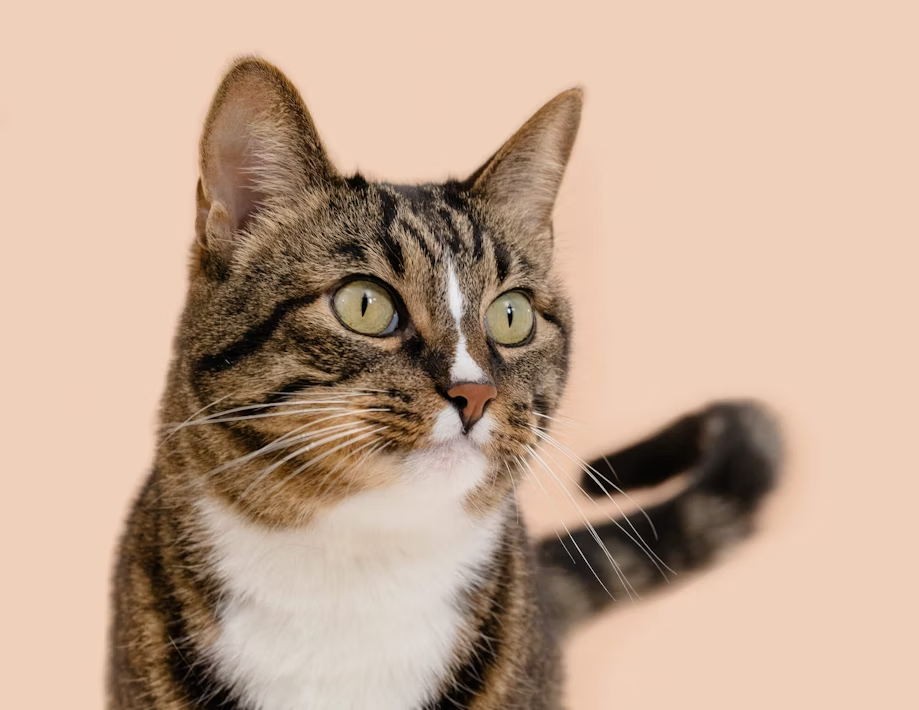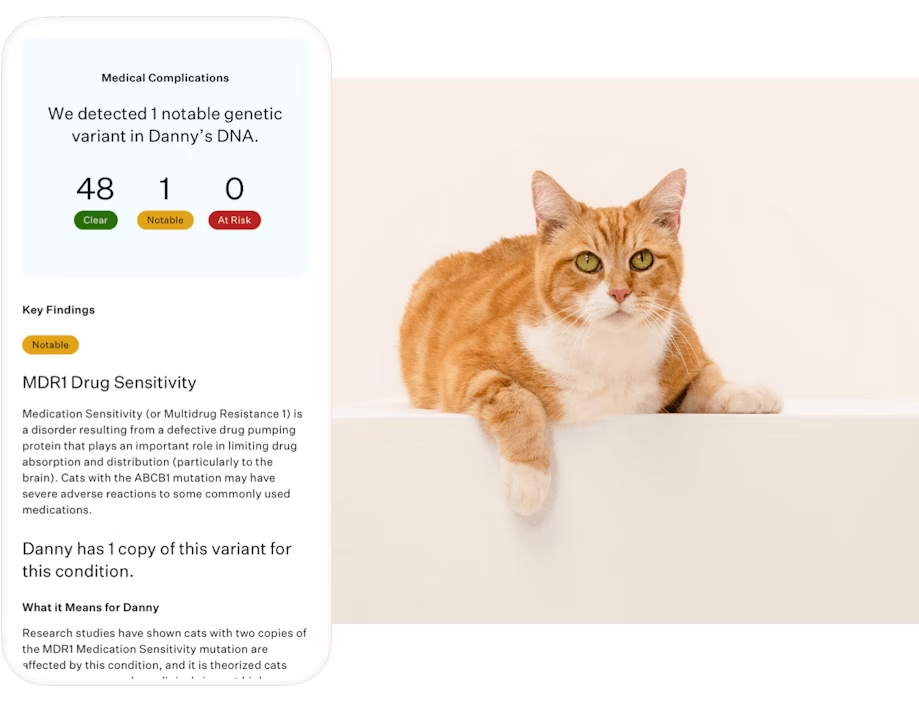When you brought home your new kitty, you probably stocked up on yummy cat treats, bought all the toys, and picked out the perfect name.
But did you test for MDR1 medication sensitivity?
It’s one of the first things you should do as a new cat parent. Because this genetic disorder limits the absorption and distribution of drugs often administered in veterinary medicine. And that means routine health care—including neutering/spaying and parasite treatment—could be life-threatening for your cat.

What causes MDR1 medication sensitivity in cats?
A variant in the MDR1, or Multidrug Resistance Mutation 1, gene (also known as ABCB1) disrupts a drug transport pump called the P-glycoprotein pump. And that keeps it from doing its job of excreting and eliminating medications from a cat’s system.
As a result, cats with MDR1 medication sensitivity can’t clear certain drugs properly. And when those drugs hang around for longer than intended (particularly in the brain), there can be negative consequences.
Did you know? This medical complication can also affect dogs. Learn more →
Research shows that cats with two copies of the MDR1 variant are at a high risk of having severe adverse reactions to common medications. But even those with just one copy of the variant could be affected if treated with higher doses.

Signs your cat may have MDR1 medication sensitivity
In cats with the MDR1 variant, certain medications may cause generalized neurological abnormalities, such as:
- Difficulty breathing (dyspnea)
- Difficulty walking (ataxia)
- Dilated pupils (mydriasis)
- Drooling
- Jumpiness
- Lethargy
- Seizures
- Tremors
These symptoms can be quite severe. (Fortunately, full recovery is possible with appropriate support from a veterinarian.) So, the best thing to do is test for MDR1 medication sensitivity before your cat shows signs of having it.
Test your cat for the MDR1 gene mutation (and more).
As the world’s most comprehensive cat DNA test, Wisdom Panel™ Complete for Cats screens for over 45 health conditions—including MDR1 medication sensitivity. Plus, you’ll also get insights into your cat's ancestry and traits.
Learn MoreMedications to avoid in cats with the MDR1 variant
Cats with this condition have no symptoms until they receive certain medications, such as:
- Acepromazine (tranquilizer)
- Butorphanol (opioid)
- Doramectin (antiparasitic)
- Doxorubicin (anti-cancer)
- Emodepside (anthelmintic)
- Eprinomectin (antiparasitic)
- Erythromycin (antibiotic)
- Ivermectin (antiparasitic)
- Loperamide (antidiarrheal)
- Milbemycin (antiparasitic)
- Moxidectin (antiparasitic)
- Paclitaxel (anti-cancer)
- Rifampin (antibiotic)
- Selamectin (antiparasitic and anthelmintic)
- Vinblastine (anti-cancer)
- Vincristine (anti-cancer)
As mentioned above, the problem with these medications is that they use the P-glycoprotein pump, which the MDR1 mutation renders defective.

What to do if your cat has MDR1 medication sensitivity
Step one? Tell your veterinarian. They’ll be able to give your cat alternative medications that don’t use the P-glycoprotein pump. It’s also wise to tell anyone who cares for your cat—such as pet sitters or groomers. That way, everyone will have the information they need to provide the safest treatment in the event of an emergency.
And if you’re thinking about breeding your cat, you might want to reconsider. Because this is a genetic disorder, it can pass from parents to offspring.
We hope this information has been helpful! If you have more questions about MDR1 or need guidance on your pet’s health care, remember that your veterinarian is your best resource.




